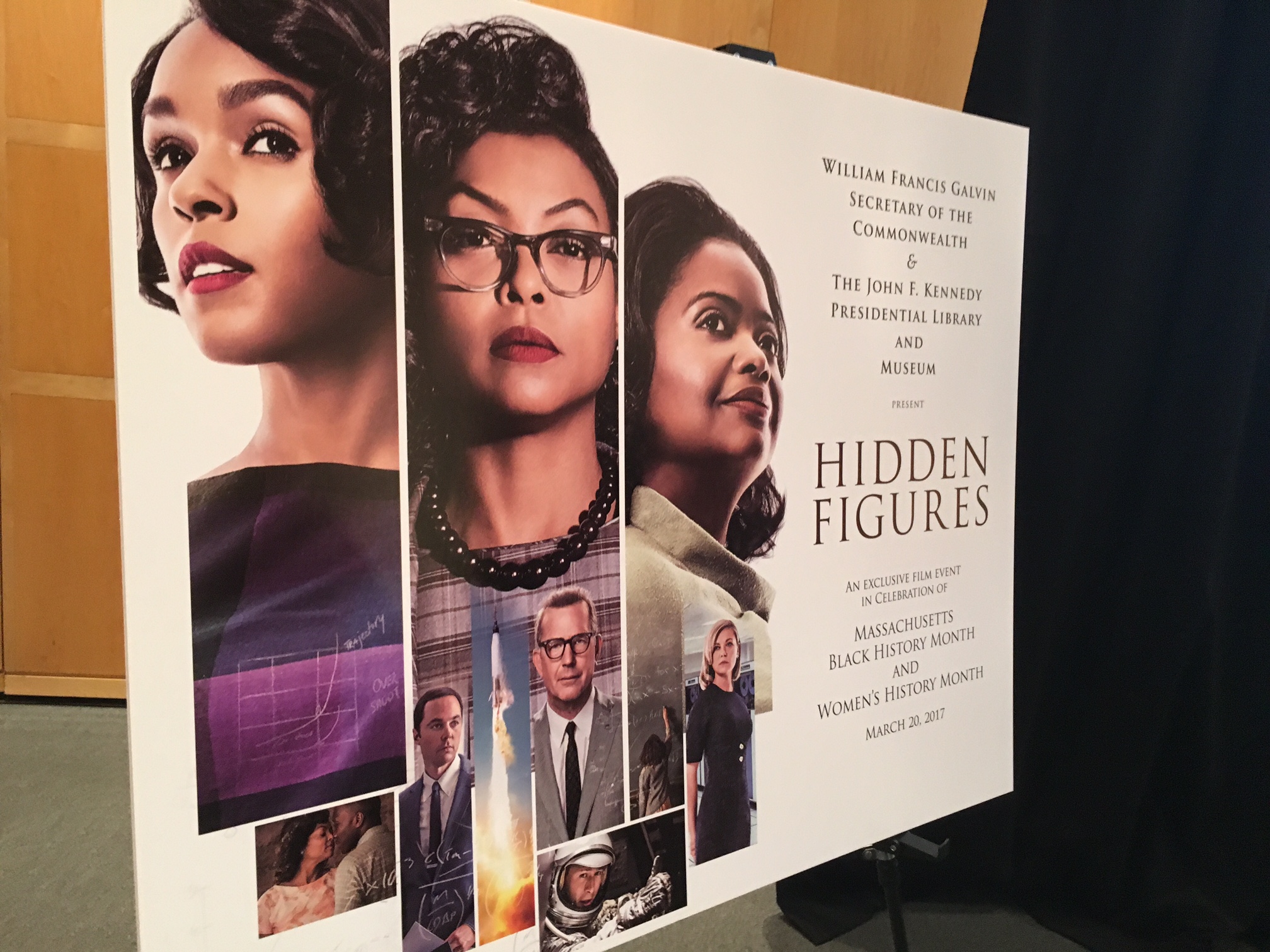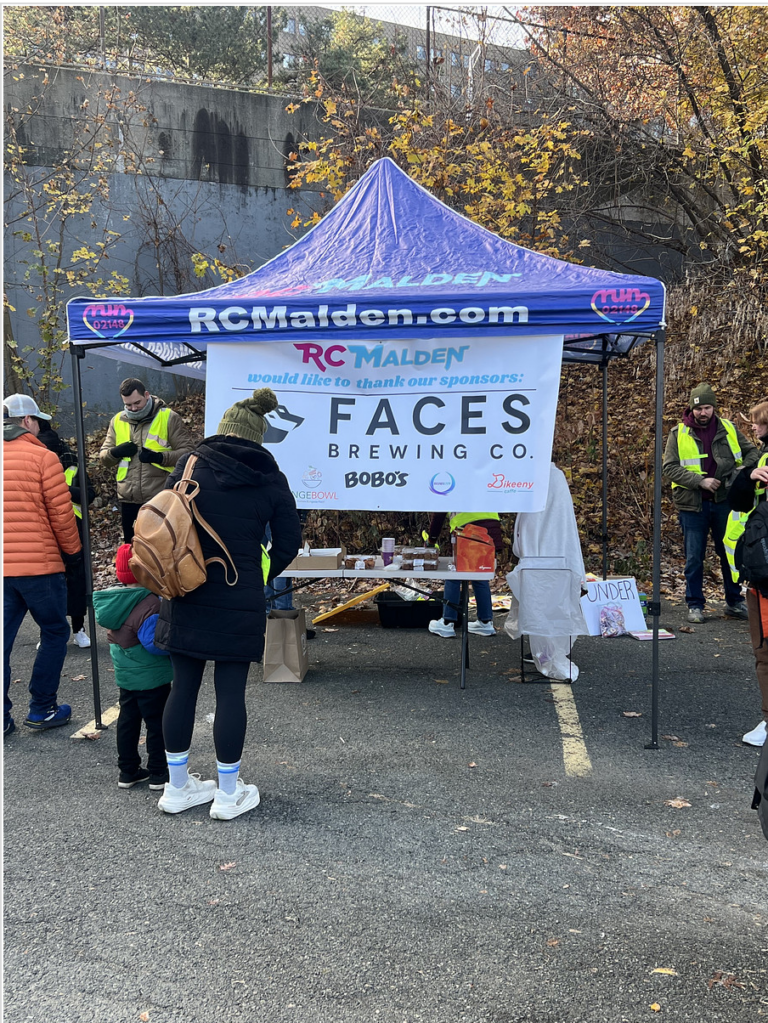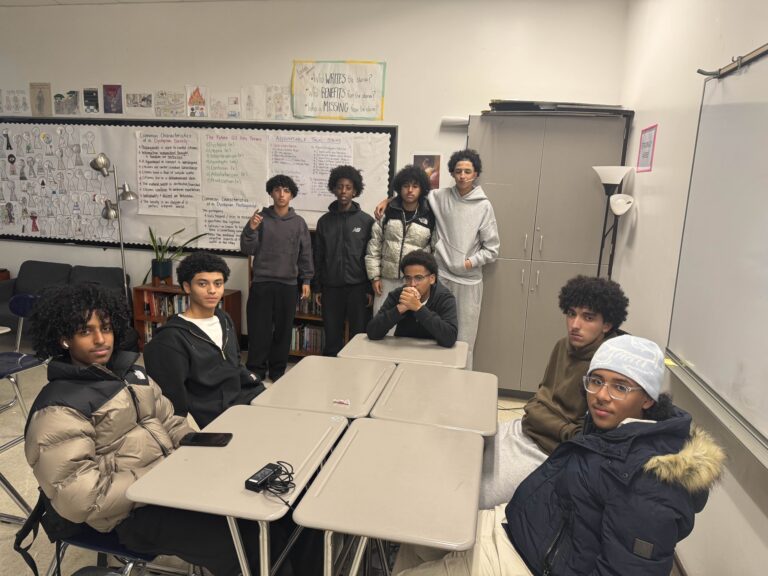
A poster for the Hidden Figures screening. Photo taken by Christina Appignani.
On March 20, a group of MHS juniors attended a special screening of the film “Hidden Figures” at the JFK Presidential Library and Museum in Boston. The screening was held in honor of Massachusetts Black History Month and Women’s History Month, which are held in February and March, respectively.

Prior to the screening, students were welcomed by the executive director of the Massachusetts Archives and Commonwealth Museum, J. Michael Comeau. He then invited the docent manager of the JFK Library, Katherine Gilliland, up to the podium. Gilliland explained some of the history of the time when “Hidden Figures” takes place. In 1957, The Soviet Union have just launched Sputnik 1 into space, frightening many Americans due to their lack of knowledge of the satellite. America was appalled that the Soviet Union had surpassed their space technology and that they now had the upper hand in the Nuclear Arms race. As a result, the president at the time, Dwight D. Eisenhower, sped up the U.S satellite program, resulting in the Space Race competition between the Soviet Union and the U.S.
Anne Borg, a member of the Women’s Suffrage Celebration Coalition of Massachusetts, introduced the organization “Suffrage 100 MA” to students. The organization began in 2010, when then-Attorney General Martha Coakley wanted to celebrate and commemorate the 90th Anniversary of the adoption of the 19th Amendment to the U. S. Constitution, guaranteeing women the right to vote. Aware of attorney Fredie Kay’s strong interest and passion for women’s issues, Coakley asked Fredie if she was interested in creating a commemoration. Kay then began the effort of creating the organization, inspired by her desire of sharing the largely unknown history of the women’s suffrage movement. She was also motivated by her belief that if more people understood the obstacles faced, the sacrifices made, and the physical mistreatment many women suffered in jail to achieve suffrage, the more people would appreciate and exercise their right to vote. As of 2016, more than 30 entities participate in the organization.
Hidden Figures is a biographical film, based on a nonfiction book of the same name, of the lives of three African American female mathematicians who worked at NASA during the Space Race. Katherine Globale, Mary Jackson and Dorothy Vaughan, played by Taraji P. Henson, Janelle Monáe and Octavia Spencer work in the segregated West Area Computers division of Langley Research Center in Hampton, Virginia. Globale is a mathematician who works as a “computer”, Jackson is an aspiring engineer and Vaughan is an unofficial supervisor of the West Area Computers.
Due to the increased pressure on sending American astronauts into space, Globale is assigned as the first colored woman to be apart of the Space Task Group, assisting in analytical geometry. Jackson becomes involved in the designing of the Friendship 7 capsule, which was the first American capsule to successfully orbit the earth. She decides to pursue an engineering degree and ends up attending night classes at an all white school after convincing a judge that she had every right to attend the night classes as the white men did. Vaughan prevents her co-workers from being replaced by electronic computers by teaching them Fortan, a programing language for scientific computing and numeric computation.
Despite the initial racism against them by their white colleagues, the three women make significant contributions to history for mathematics, technology, and rights for African American women. Globale’s successful calculations for the landing coordinates of the Friendship 7 capsule helped it to complete its mission. She later calculates the trajectories for the Apollo 11 and Apollo 13 missions. Jackson became NASA’s first African American engineer, who worked to make changes and highlight women and other minorities who were accomplished in science, mathematics and engineering fields. Vaughan became the first African-American supervisor of the West Area Computers
After the film, selected documents and items from the collections of the Massachusetts Archives and the JFK Library were put on display for viewing. Some of the documents displayed were a memorandums for the Vice President on overall surveys of where the U.S stood in Space, conclusions on the evaluation of the space program and a letter from John F. Kennedy to the Soviet Union expressing the satisfaction of the U.S for the safe flight of the first man into space.




